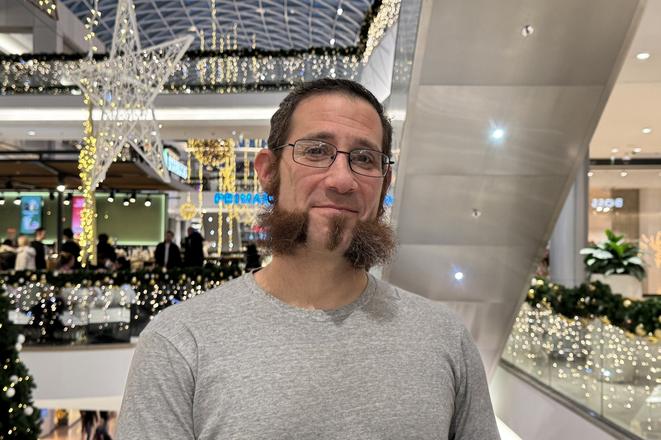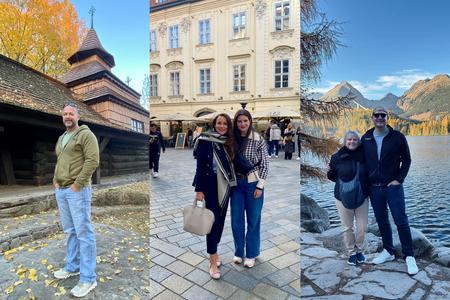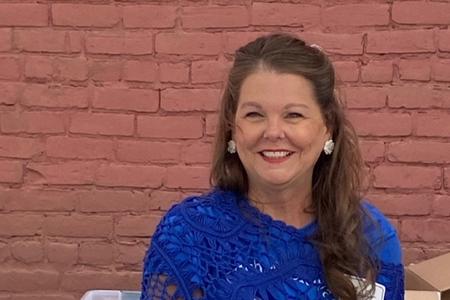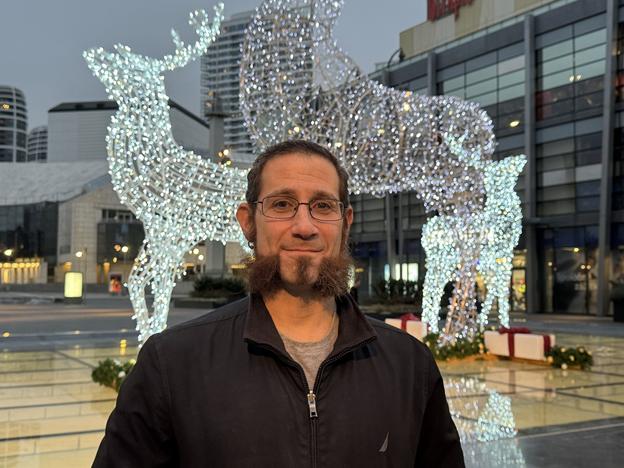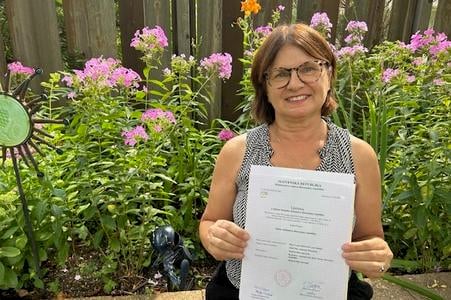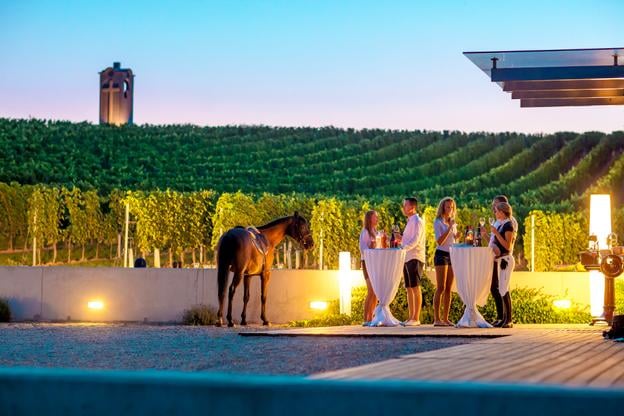You can read this exclusive content thanks to the FALATH & PARTNERS law firm, which assists American people with Slovak roots in obtaining Slovak citizenship and reconnecting them with the land of their ancestors.
When the Covid-19 pandemic started in early 2020, a whole lot of people found themselves with a bunch of free time. Jonathan Klein, a native of Philadelphia in Pennsylvania, US, used this time to start an experiment.
He signed up for a free trial on Ancestry.com to see what would happen. Growing up, he knew his great-grandfather emigrated from Czechoslovakia as a young man but not much else. He wasn't close with his family and basically stopped talking to them when he turned 18.
"I really was not expecting a lot of information because all I knew was my grandfather's name and he had been deceased for years. And shockingly, immediately so much information came up," Klein says, adding that the most important thing for him was the manifest of the ship his relative took to get to the US.
This led him to learning a lot about his family, eventually resulting in a new home for him and his wife in Bratislava's borough of Petržalka.
Sleuthing out history
Klein is a descendant of a Jewish family that gradually emigrated between 1921 and 1929, probably because they couldn't afford to leave together.
According to the manifest he found, Klein's great-grandfather was the first to emigrate. He set out for the New World from Hamburg in Germany. Since his relatives had to put his place of birth on the manifest, each of his relatives' United States naturalisation papers contained their place of birth as well as the town they had lived in before they left for the United States. Eventually, Klein was able to piece together a picture of his family.
"It immediately sparked a whole lot of interest and I started researching the towns, but it was challenging because they had given the names in Hungarian. It took a little bit of sleuthing to figure out what their modern names were," he says.
His great-grandfather came by himself. He moved in with his brother who had come to Philadelphia in the early 1900s as a merchant seaman. However, Klein was unable to learn more about this man. His great-grandfather was a shoemaker and eventually ended up setting up his own shoe making business, as shown in census records. The great-grandfather eventually gained full citizenship.
When he emigrated, he left his wife with five children back home. Thanks to a free publication on Google, Klein also found a directory of every citizen in the Czechoslovak Republic recorded in 1921. His great-grandmother's name, Irma Kleinová, was the only one listed in it. According to the directory, after her husband left she moved to Levoča and worked at a Jewish-owned alcohol distillery. She probably lived in it as well, since the distillery housed its workers.
"I guess after he left, she moved to a fairly bigger city and found work to support the kids while he was in the US."
In 1927, Klein's grandfather came over, also by himself. At first, Klein couldn't understand why but the answer eventually presented itself in immigration laws. The rule was that if a US citizen had a child in another country, as long as they arrived in the US before their 18th birthday, they were automatically granted US citizenship. His grandfather was 17 and a half years old when he came.
The rest of the family did not arrive until 1929.
"For eight years, my great-grandfather didn't see his wife or his most of his children, which is crazy. This was a fascinating series of things that I never knew. I learned all of that when I was 45, 46," Klein explains.
Interestingly, when he and his now wife were dating, he visited Bratislava once before he knew about the connection. His wife, Jen, has a connection to Europe as well, one that actually dates back much farther. Her relatives came to the US in the 1790s.
Homeless in a way
Out of curiosity and hopefulness, he looked at what citizenship requirements were for Slovakia. That was in 2021, when Parliament was debating the law that now exists granting citizenship to people who are descendents of Slovak emigrants. He googled the words "immigration lawyer Bratislava". According to Klein, only three came up; one had a website only in Slovak, the other two in English.
"I emailed the two. One got back to me in not great English, but still better than my Slovak. The other got back to immediately in conversational English, said, 'you know, we're pretty sure the law is going to be passed'. I said, 'tell me what I need to do', and we immediately started working on gathering more documentation. We were able to find birth records of my relatives still existing on a microfilm. To see those documents was amazing," Klein says, emphatically.
He's almost finished with the process. The government promises a decision on citizenship within 24 months.
"I am at 23 and half months and I’m still waiting," he explains. Although Klein has a flat, pays the bills, and owns a car, there is an issue with his ID.
"When I applied for my residence permit and filed for my citizenship application, I obviously didn't have an address here in Bratislava. At the time I didn't think twice about it, but my residence permit reads Staré Mesto. No street name," he explains, adding that he is unable to change it because nobody can get an appointment with the Foreigner’s Police, referring to the current issues plaguing the reservation system.
"So I'm hoping that the government will make a decision on citizenship soon and then, assuming it's a yes [makes a knocking sign on a table], when I go to file all my official paperwork and I get my passport, I can declare my current address as my permanent address."
Cats and dog already here
Klein and his wife live in Bratislava's borough of Petržalka. Even before officially moving, the borough immediately caught his interest. It offers proximity to services, there is a soon-to-be-finished tram, bike trails, the Chorvátske Rameno channel and more. The more times they vistited Bratislava, the more they fell in love with the city.
"A side story. I'm not a religious person, but culturally still identify as Jewish. My realtor is half Slovak, half Palestinian who grew up here in the 90s. In the world we live in today, there's something I think absolutely beautiful and amazing about a Palestinian Slovak helping a Jewish American. He went so far above and beyond. He was a bridge between me and contractors, between me and getting a bank account open. I can't say enough about his generosity of spirit."
By the time the interview took place, he and his wife had been living here for six months, together with their two cats and a dog. The move is permanent. In 2022, Klein started selling his real estate interests in Philadelphia, and at the beginning of this year he also sold his bar restaurant.
"My grandfather, were he still alive, I think would probably have some strong opinions about me moving here, to the place that he and his whole family left."
'Uncanny' similarities
When asked about the differences between Bratislava and Philadelphia, Klein opines that the similarities between both are 'uncanny'. Obviously, area- and population-wise, the two can hardly be compared.
"Aside from that, Philadelphia is a formerly very blue collar industrial city. Unfortunately, it is the poorest of the six biggest cities in America, so there's very much an underdog mentality and I think we've seen that here [in Bratislava] in number of people. When we say we've moved here, people go, 'from America?', and without any sarcasm add 'why?'"
When it comes to climate, there is no change.
"In Philadelphia, we used to get more snow in the winter and now if it snows once or twice people go, 'oh my god' and everyone complaints about it," Klein says amusingly.
According to him, both have a lot underutilised areas that were industrial factories, though those in Bratislava were built under socialism and those in Philadelphia when it was a big manufacturer. However, he opines that these areas could be repurposed into something really exciting. Another interesting similarity is that both have a thriving Vietnamese community, but for exactly the opposite reasons. While the Vietnamese fled to Philadelphia from communism and the war, they came to Bratislava because of the exchange programme during socialism.
One similarity resulting from this cultural exchange came as a surprise for Klein and his wife.
"Philadelphia has become famous for being a really good food city, with its super diverse restaurant scene and every kind of cuisine you can imagine. We did not expect to find that in Bratislava. Even in Petržalka, not a touristy neighbourhood at all, we just went for tapas two days ago. We went to a fantastic Thai restaurant," he says.
Another similarity that hits much closer to home relates to the demolition of a Jewish neighbourhood under Bratislava Castle in the 1960s to make way for a new bridge.
"Philadelphia made a huge mistake in the 1960s and demolished a very historic section connecting one of the oldest parts of the city to its waterfront to build guess what? A large highway," he says, adding that there is a proposal and effort to build a cap over the highway to reconnect the old city with the waterfront. Coincidentally, a similar idea was proposed in Bratislava as well.
"That's a really interesting, very specific parallel that you'll be hard pressed to find in a lot of other cities."
Last but not least, both Philadelphia and Bratislava are "the middle child of two more famous cities", as Klein puts it. The former lies between New York and Washington, DC, while the latter between Vienna and Budapest. According to him, in the States Philadelphia is known as a stop-over city in which you stay for a day or two.
"But I think that gives Bratislava an advantage over a lot of other cities. It’s never going to be like Prague, Vienna, this massive tourist destination. But that makes it a city for living in," he opines, adding that he and and wife love the European way of life, which in his opinion is less focused on work, and more on the quality of life and experience as opposed to material things.
Being involved
Klein is not wasting time and is already trying to get involved in the community and make something out of his experience. For example, since being a history buff himself, he was able to co-write a curriculum on Slovak history for people going through the process of obtaining Slovak citizenship.
"It was a great way for me to learn about Slovak history myself, but also contribute something that is a basis for a large number of Americans now following in my footsteps who want to embrace Slovakia," he says, explaining his reasons for doing the project.
Also, since being part of the restaurant business for more than 27 years, he has become involved in the Bratislava bar scene. Owners of the former expat bar The International have recently opened a new venue. Klein invested in it, becoming a silent partner of sorts.
"I'm much more interested in just being of whatever help I can be to them."
Since he has no siblings and his parents are already deceased, there was little to hold him in the US save his friends.
"Our experience here so far has been exactly what we hoped it would be. There's nothing that we're feeling homesick about other than people, I would love to see my friends more. But we're also making new friends here," he adds.
Some of the Kleins‘ US friends have already visited their new home and the couple hopes to continue to introduce their new country to American friends.
Spectacular Slovakia travel guides
A helping hand in the heart of Europe thanks to our Slovakia travel guide with more than 1,000 photos and hundred of tourist spots.
Our detailed travel guide to the Tatras introduces you to the whole region around the Tatra mountains, including attractions on the Polish side.
Lost in Bratislava? It's impossible with our City Guide!
See some selected travel articles, podcasts, traveller infoas well as other guides dedicated to Nitra, Trenčín Region, Trnava Region and Žilina Region.


